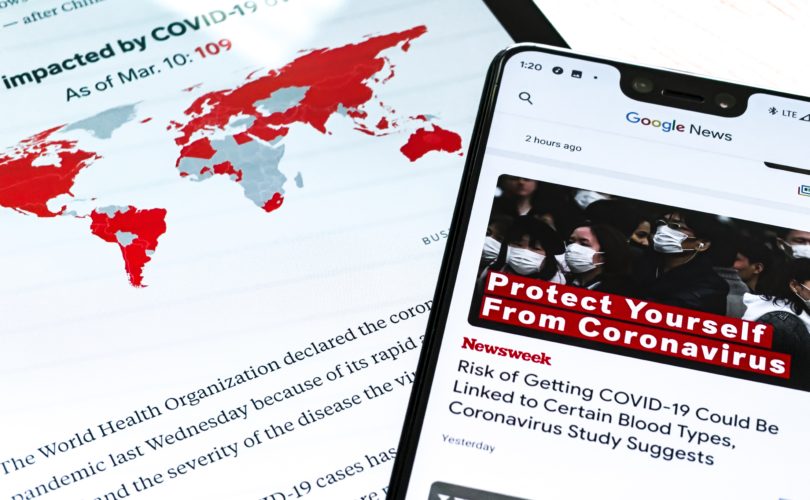I asked him how his first week at our church’s support and recovery group went. It’s a curriculum that I’m very familiar with and a ministry that I’d been involved in professionally. My client was pretty shaken up by what he encountered. There were men whose marriages were on the brink of divorce and whose families were being destroyed and he was simply not ready for that reality. We have a number of these support/recovery groups and my client attended the one for men who struggle with pornography. Like many single men in the church, he’s assumed that pornography wouldn’t be a problem once he “had an outlet” in marriage. Like many Christian young men, he was setting himself up to be in the same position as those men.
What Conversation are We Having?
After we graduate grad school and pass our board exams, licensed counselors spend 3,000 hours in “supervised practice”. Essentially the first few years, we have a more experienced counselor mentoring us regularly which we call clinical supervision. In was in one of these supervision sessions that I learned that the only reasons that pornography addiction wasn’t in the Diagnostic and Statistical Manual (where we get diagnoses from) were money and politics. There is a ridiculous amount of money in the porn industry and the mental health field has in recent years leaned toward individual autonomy on moral issues, focusing on a more medical approach to mental healthcare. The fact that we’re viewing the issue that way however, could be hurting us.
I’ve seen men both Christian and not in my office for the impact that their porn use is having on them and on their relationships. Pornography objectifies women (and men!), often glorifies sexual assault, infidelity, and pedophilia. It ruins relationships and (as we’ll discuss further on) has a very real impact on an individual’s mental and emotional health. Pornography is certainly not less than a moral issue but it is absolutely more than that as well. It’s a public health issue.
Pornographic Style of Relating
There was an article I saw floating around lately written by Andrew Bauman on the conflation of “Biblical” marriage and a Pornographic Style of Relating (PSR). His original article on PSR is very worth your time to read and you can find it here. In short, pornography is influencing the way that we relate, in particular as men towards women. A PSR is marked by: control, objectification, speed (at which the relationship progresses), hunger, isolation, and fantasy.
Consider the fact that most of those are also markers of abusive relationships. Having a PSR will kill your relationships and set you up to view your spouse in a dehumanizing way that has an alarming overlap with abuse. Ironically, viewing your future spouse as “an outlet” to keep you from using porn is already you participating in a PSR. I’ve often said that purity culture agrees with pornography more than its most ardent supporters would like to admit. In viewing women as means to an end (sexual satisfaction, happiness, sin prevention, etc.) and ourselves as consumers, we’re setting our relationships up to have as much actual emotional intimacy and you know, relationship as the porn we’re hoping we won’t watch once we’re married.
I and Thou
So, pornography affects our culture and our relationships, certainly; but it also affects us as persons at a deeper level. Yes, it affects how we relate to the world and others but in that it also affects how we relate to ourselves. Let me explain:
Martin Buber was a philosopher who wrote a book titled “I and Thou” in which he describes relating in a manner characterized by mutuality, presence, and a genuine ability to encounter the other as an other rather than an object or means to an end (I/It relationship). The I/Thou relationship regards the other as their own being, has a genuine curiosity about and affection for the other, and acceptance. In an I/It relationship, everything is a transaction. You are what you do for me, what you say about me or my status, or what you get me. You can probably see how a PSR is really just an I/It relationship with one’s partner or spouse. You can no doubt see how it creates an I/It relationship towards women on the whole. If I may, allow me to add one category.
When we consume pornography, we turn that I/It relationship inward as well. When the way I relate to my body is that pleasure is an entirely self-contained experience that must be had in secret, away from others, I have shut myself off from any actual intimacy. Humans were made to connect with other humans. It’s how we heal, how we are meant to live, how we are meant to love. In viewing the woman on the screen as an object, I too become an object: the consumer. It is impossible to objectify “the other” without becoming an object ourselves. Pretty soon, the way I relate to myself, my needs and desires has become as distorted and unhealthy as the way I relate to others.
Talking Back to Porn
When I was teaching undergrad counseling and psychology classes in a prison setting, I developed a motto of sorts unexpectedly that I would drill into my students’ heads: see the human. Prison is an objectifying and dehumanizing setting. The other prisoners that these men would minister to and counsel would have many needs and the impulse can be to then, as ministers and counselors, go out and get as many tools as possible. I pushed back against this urge as hard as I could while I had them. More than any tool, therapy, certification that you can get; it’s you as the counselor that’s the most helpful and reparative tool you have to offer those you sit with. That makes actually seeing the person in front of you, not just what they’ve done or what’s happened to them, a vital tool.
Our culture certainly seems bent toward dehumanization. The way we engage with others on social media as if there were not real humans behind those accounts at times reveals it. We communicate very quickly and often without the context of seeing a person in front of us responding. We live very fast lives measured in “productivity”, often with busyness held up as a trophy.
Perhaps one of the most strategic things we can do to fight this pandemic and its effects is intentionally pursue and cultivate I/Thou relationships around us. These don’t have to be romantic, in fact many of us (especially men) could use a lot more friendships. Cultivate relationships where you slow down and really see the human. I once heard a pastor say that husbands should be students of their wives. What if we practiced being a student of the person in front of us so regularly that we became known as people who made others feel genuinely seen and heard?


